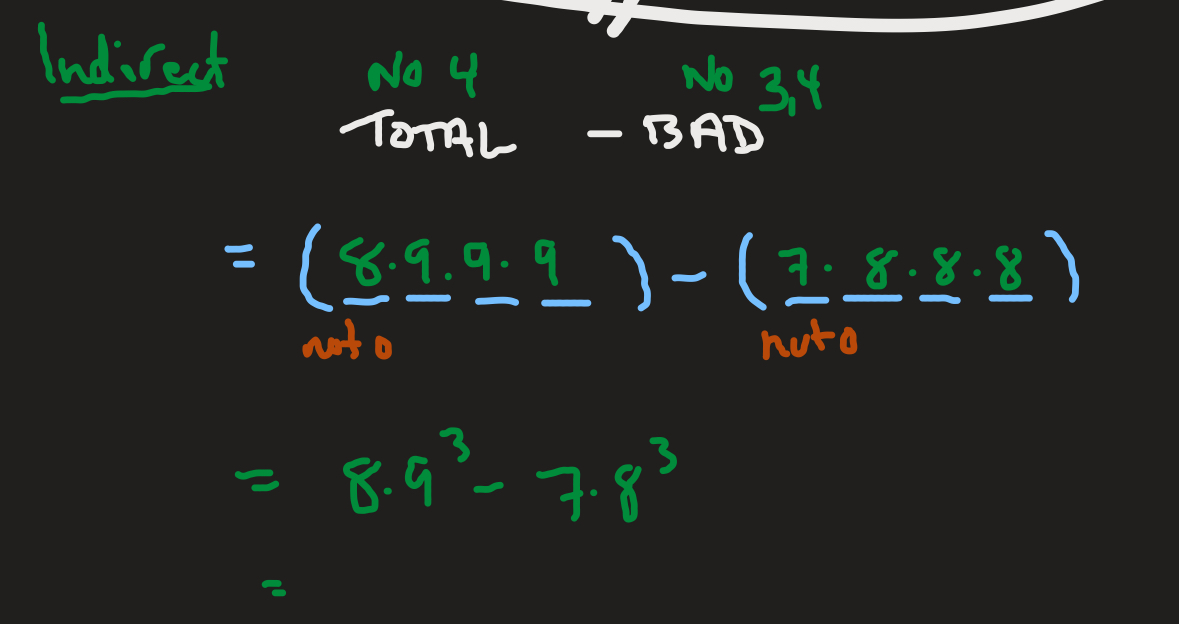Permutations
1/8
Earn XP
Description and Tags
Name | Mastery | Learn | Test | Matching | Spaced |
|---|
No study sessions yet.
9 Terms
Given a scramble of numbers, how would I sort for ways to find all EVEN arrangements? Ex. 2555207134 (10#)
CASES ❕
If it ends in zero
9! (/ # of repeats as factorials if applicable )
not 10 since 0 is locked in
If it ends in other even digit
8 • 8! (/ # of repeats as factorials if applicable )
starts with 8 b/c ≠0 and we locked in an even number
Repeat for each unique even number as # repeat factorials will differ
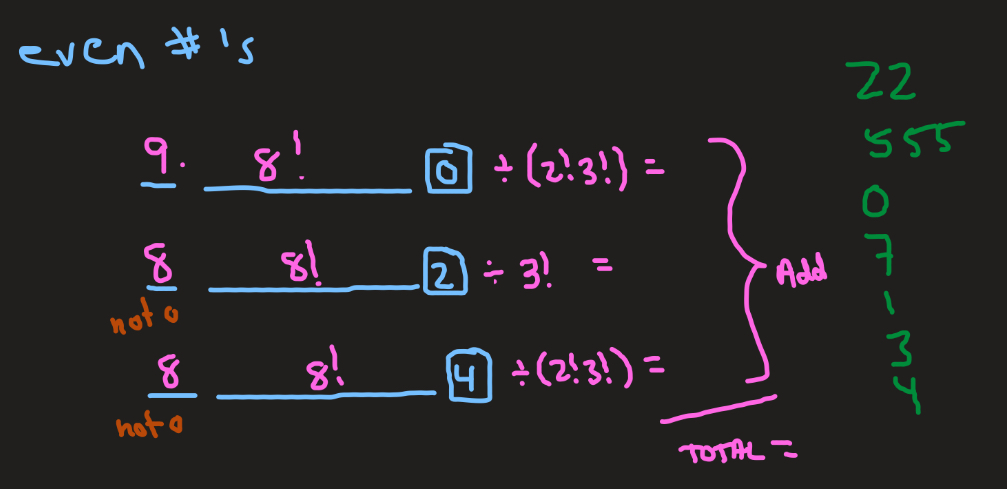
Given a scramble of numbers, how would I sort for ways to find all START ODD and END ODD arrangements? Ex. 5199697610 (10#)
• Lock in the amount of odd # in slot 1
• Lock in the amount of one less odd # in the last slot since we used the first number
• Fill in the remaining middle with (total # - 2)!
• Divide by repeat factorials if applicable
6 • 8! • 5 /2!3!

Given a scramble of numbers, how would I sort to find the ways a set of numbers is LOCKED IN? Ex. 5199697610 (10#) → lock in “7134”
• Consider “7134” as ONE block, which reduces the total number of digits by 3 (10-3=7)
• First slot cannot be 0, so reduce count by 1
• Fill in remainder slots (don’t forget you have 1 extra since you can include 0)
• Multiply by the # of ways inside the block can shuffle
• Divide by repeat factorials if applicable
(6 • 6! /2!3! ) x4
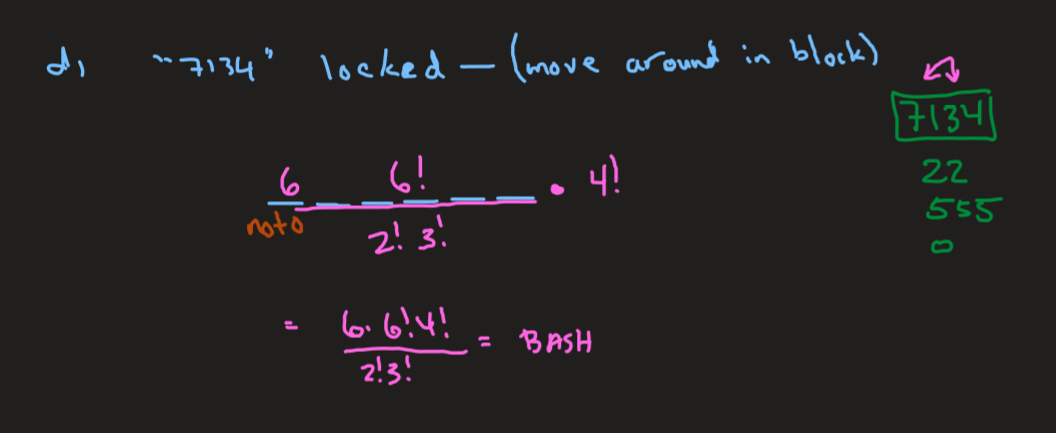
If I have a circle of people, how many unique arrangements would I have? Ex. 8
8! / 8 = 7!
Divide by the # of people to remove keeping the same people beside each other
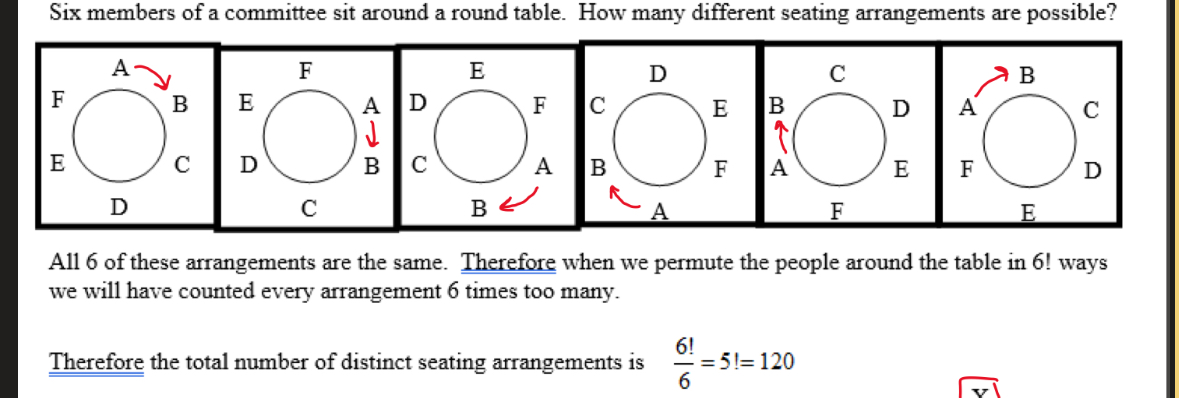
If I have a circle of people, how many unique arrangements would I have where X and Y are NOT TOGETHER? Ex. 8
• Make X and Y a block to calculate ways they are together: 7!/7
• Multiply by 2 for shuffling: 7!/7 ×2
• Take total of arrangements 8!/8 and SUBTRACT where X and Y are together: 8!/8 - (7!/7 ×2)
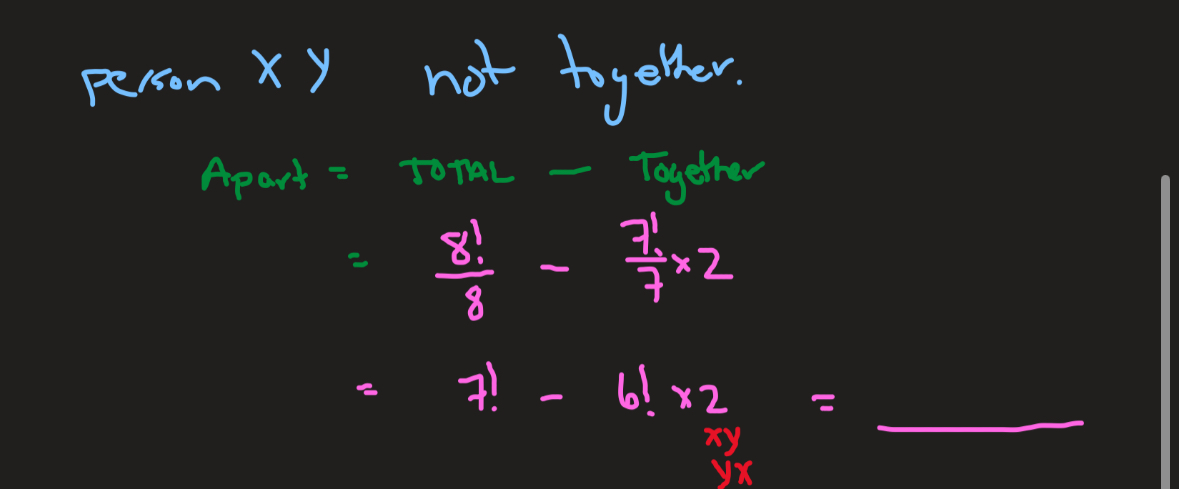
Given a set of letters, how can you find the # of arrangements you can make which start with a vowel and end with a consonant? Ex. “ALGEBRAICALLY” (13 #)
• Lock in the # of possible vowels at the start
• Lock in the # of possible consonants at the end
• Decrease total # of letters by 2 to account for the used slots and fill in the middle
• Divide by repeat factorials if applicable
5 • 11! • 8 / 3!3!
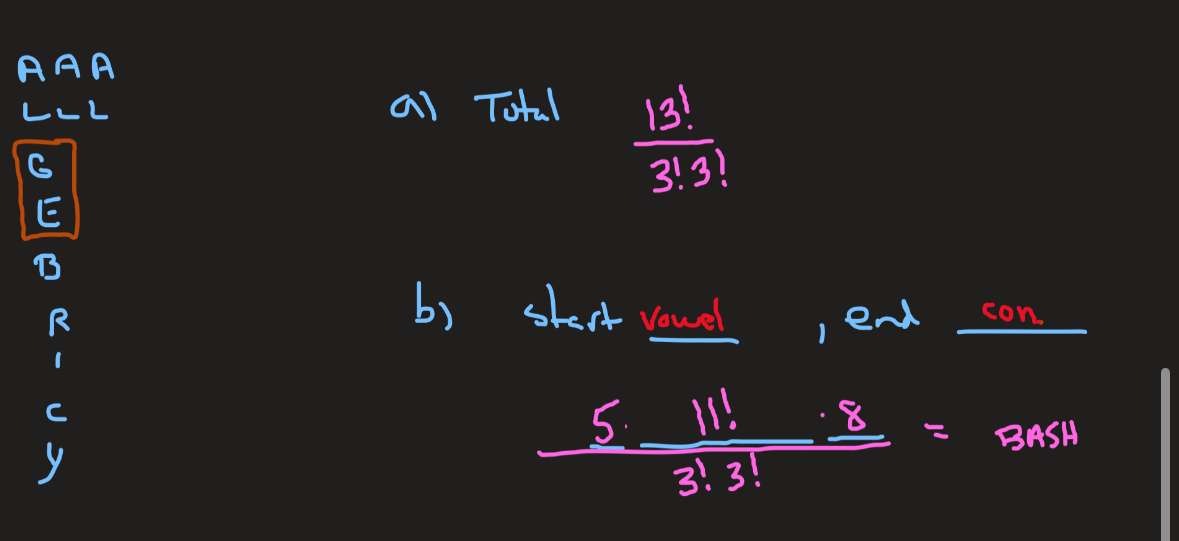
Given a set of letters, how can you find the # of arrangements you can make which have G and E TOGETHER? Ex. “ALGEBRAICALLY” (13 #)
Make G and E a block which decreases total # of letters by 1: 12!
• Multiply by 2 for shuffling: 12! ×2
• Divide by repeat factorials if applicable
12!/3!3! x2
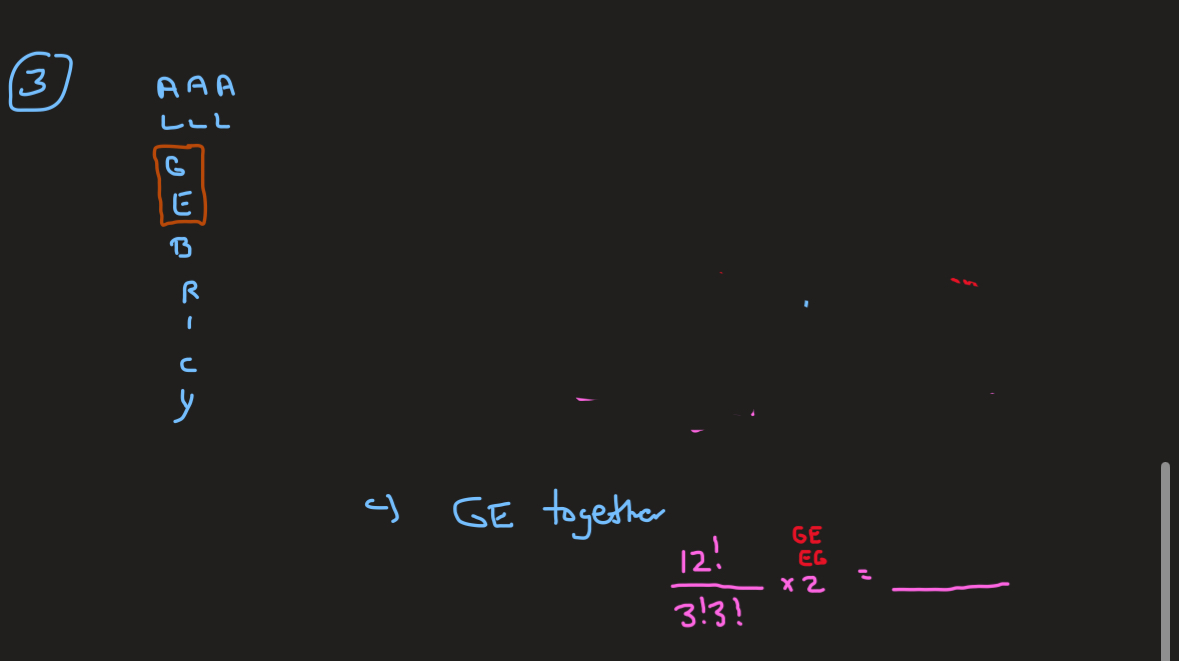
Given a set of letters, how can you find the # of 3 LETTER arrangements? Ex. “ALGEBRAICALLY” (13 #)
CASES ❕
No repeats
9 • 8 • 7
for A L G E B R A I C Y (9 letters)
Pairs
• We use ONE pair leaving us with 1 excess pair + 1 extra so 10-2=8 letters to choose from
• Break into # ways the pair can appear
❌❌✅ where ✅= # leftover (8)
❌✅❌
✅❌❌
8•8•8
• Multiply by 2 because of the excess pair
(8•8•8)x2
Triple repeats
Only 2 possible options: AAA, LLL
❕ THEN ADD ALL CASES TOGETHER ❕
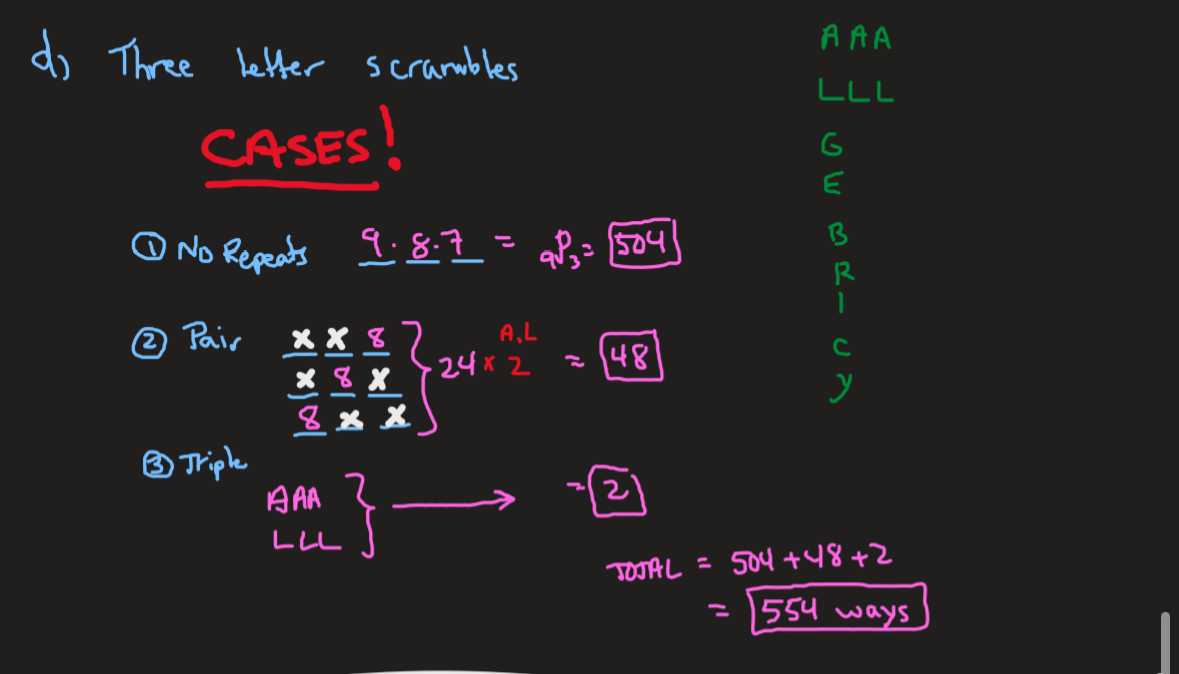
How can we find the amount of 4 digit arrangements that include a number and exclude another? Ex. include 4 and exclude 3
Indirect method: Total - bad
0→9= 10 numbers
Total with no 4 = 8 • 9 • 9 • 9 (cannot start with 0)
Bad with no 3 or 4 = 7 • 8 • 8 • 8 (cannot start with 0)
